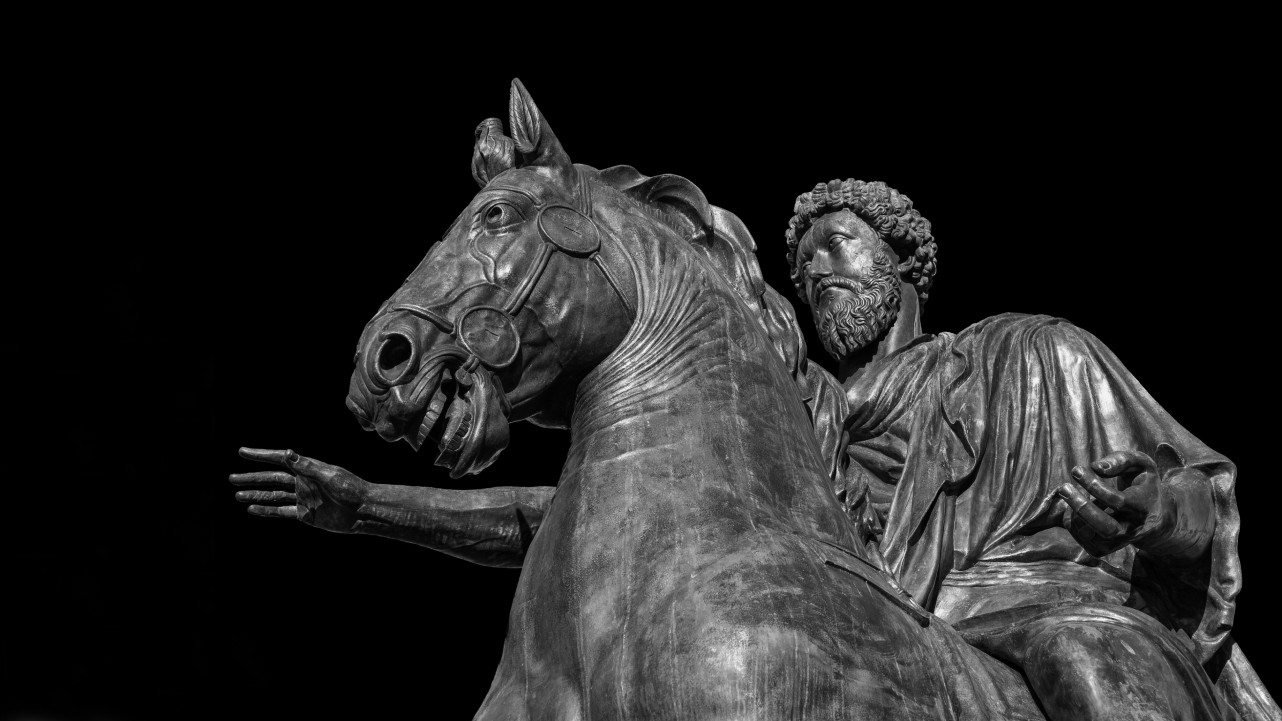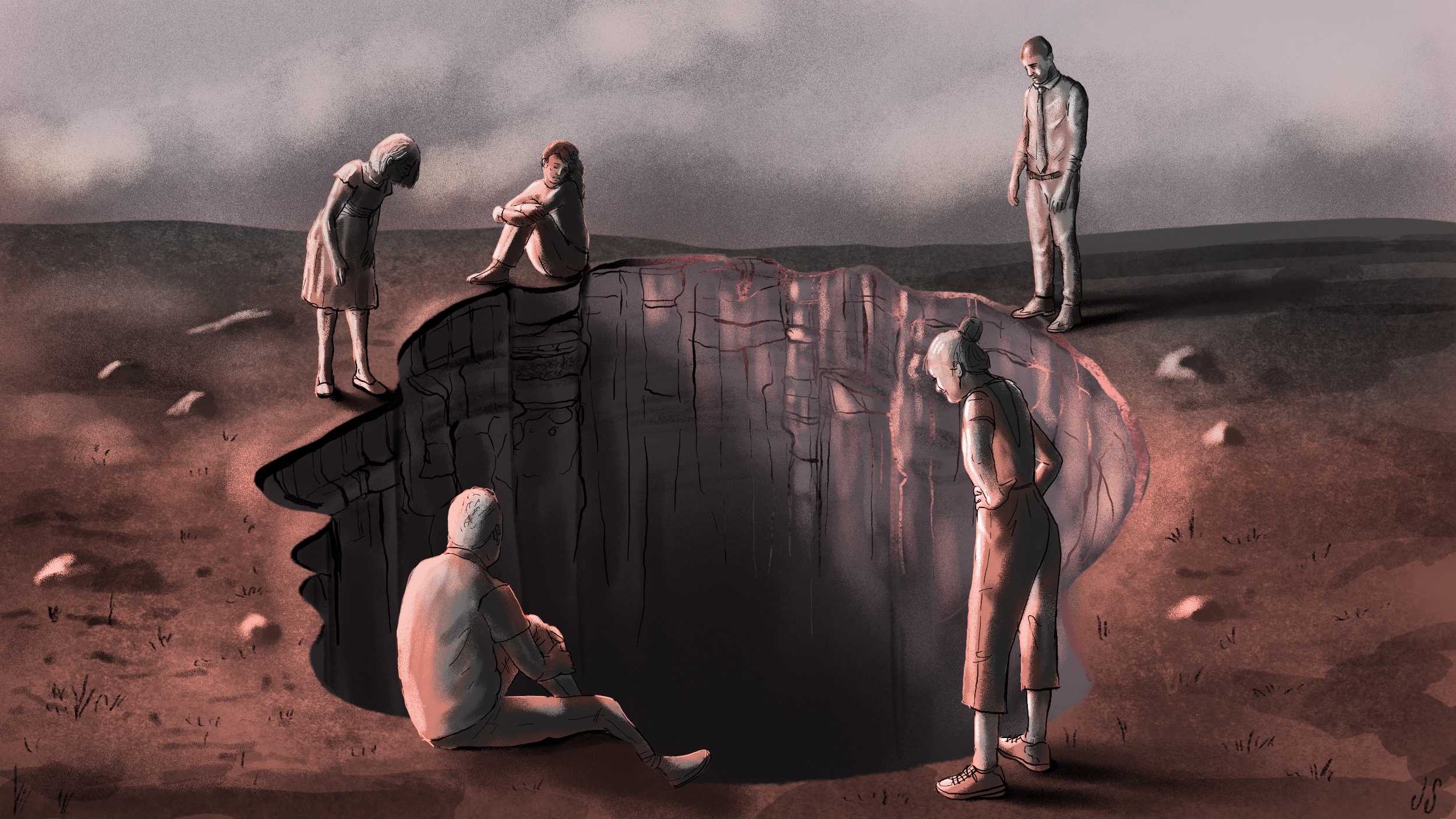Dominican Friar Thomas Joseph White unpacks the ambiguousness of religion’s impact on American politics and explains that, though he does not consider the secularization of society a personal crisis, that the tendency of some public figures to consider religious voices “necessarily fundamentalist” impedes an important discussion about universal moral goods in public policy.
Question: Do you support the influence of religious groups in American politics today?
Thomas Joseph White: I think, in a sort of secular subculture, there’s a perception that religion has a great impact on contemporary society. This is, of course, a somewhat relative judgment. It depends on what kind of secularism you’d like to aspire to, or what kind of religiosity you consider, historically speaking. I mean, I think that American religiosity is very ambiguous. On the one hand it has sort of a seemingly healthy, I would say, natural aspiration to try to find some vantage points, some orientation about basic morality. About a relationship about God, maybe. Certainly, I think that most human beings in America who are religious tends to be pretty tolerant in terms of their capacity to relegate political space to others including Atheists.
On the other hand, you can see that by making scientific discourse the unique common language of our culture, maybe the discourse about human rights on some very modest level, you know, of American liberalism, we’re not really giving ourselves a way to talk about religious issues in a sophisticated way sometimes. I think there’s a fear on the part of a lot of secular people that letting God enter into the common discourse of the culture is going to create a more intolerant society. And that certainly could be the case. But it’s also the case that we need an intelligent discourse about God. And by suppressing it, by pushing it to the margins, by treating people who want to talk about God or [who] are interested in religious questions as necessarily fanatical, as necessarily - we will use this word which is vague and impolite - fundamentalist, which could mean something but doesn’t necessarily always mean something when people use it, I think that we push the discourse to the margins, and I’m not really sure what the answer to that question is. [There is a] dialectic between an attempt to make culture purely secular, and on the other hand, to have maybe two motivists a discourse about religion, that’s unhelpful. We need to be able to analyze the questions.
Question: What is the ideal way for religion to exist within a society?
Thomas Joseph White: Well when you talk about religion and modern liberal secular culture, I’m not interested in reinventing the wheel. I take a classical Catholic line on this. Two things. One is that in a very pluralistic society, you need some kind of framework that can allow people to cooperate for the common good based on common shared convictions that are accessible to human reason - that are going to allow people to coexist in productive and healthy ways while respecting those who are most vulnerable. And providing for the good of as many as possible in the best and just way. That doesn’t require religion but it also allows religion. And I would even argue religious people are going to be, in many cases, inclined to contribute to the common good in very significant ways. And so religion can be very good for the culture in that way.
And secondly, the Catholic Church - this is really very fundamental - has a traditional distinction between mysteries of faith and the natural law. This is not a customary distinction always in Protestant thought. And since our culture is historically more Protestant influenced, it’s hard to get this traditional medieval teaching a hearing. But it’s really a distinct thing to emphasize - there’s mysteries of faith.
For example, in the belief in the divinity of Christ - that should not or may not be legislated as a matter of natural reason, so you couldn’t, as it were, enforce this on someone as something they had to believe as a matter of political law; which is actually a very classical Catholic teaching. Versus things that in principle, people can recognize by their own lights, by the force of natural reason. Such as when human life exists - it begins at conception. The Catholic Church would argue that that’s a rational truth. [There's also] certain basic principles of justice for the distribution of goods in a civil society. And there’s certain basic goods that everyone has a right to such as education, food, clothing, shelter, etcetera.
And so I think that distinction is really helpful to avoid a lot of interminable disputes about "That’s your private view." "That’s a subjective religious disposition of faith." "No. That’s an argument for natural reason." You might not believe it, but it’s in fact totally within boundaries of a healthy view of the civil society of common good that one could enter into the political and cultural world and make arguments for natural reason about basic common goods.
Question: Are you worried about the secularization of society?
Thomas Joseph White: Well, secularization of society isn’t something that I would consider a personal crisis. I mean, I find it interesting. I enjoy talking to secular people about what makes them tick, and I read a lot of secular authors. It’s not something I rejoice in or I’m happy about. I do think, objectively, it represents a certain loss for European and American spiritual patrimony that’s significant. But, you know, my life is really set up in such a way that I’m not really, I don’t think worrying about things like that is, first of all, very practical.
But second of all, it’s not really a Dominican friar’s job to worry. We’re happy people. You know, when you’ve found God or when you think you’ve been found by God, there’s a certain deep radiant joy and even if you’re emotion in psychology and your emotion and intellectual experiences of the world, obviously, are completely natural and human. And so you have down times or times where you are more pessimistic about things. I mean, deep down there’s a kind of sense of the conviction of the abiding reality and presence of God and of Christ. And you know we do see a lot of conversions. Most of the people I work with are people who are coming to the faith. Or coming back to it, sometimes after a long time. But I’m certainly interested to interact with people who are skeptical when they’re interested. I do that a lot and I find it enriching.
Recorded on: August 20, 2009





